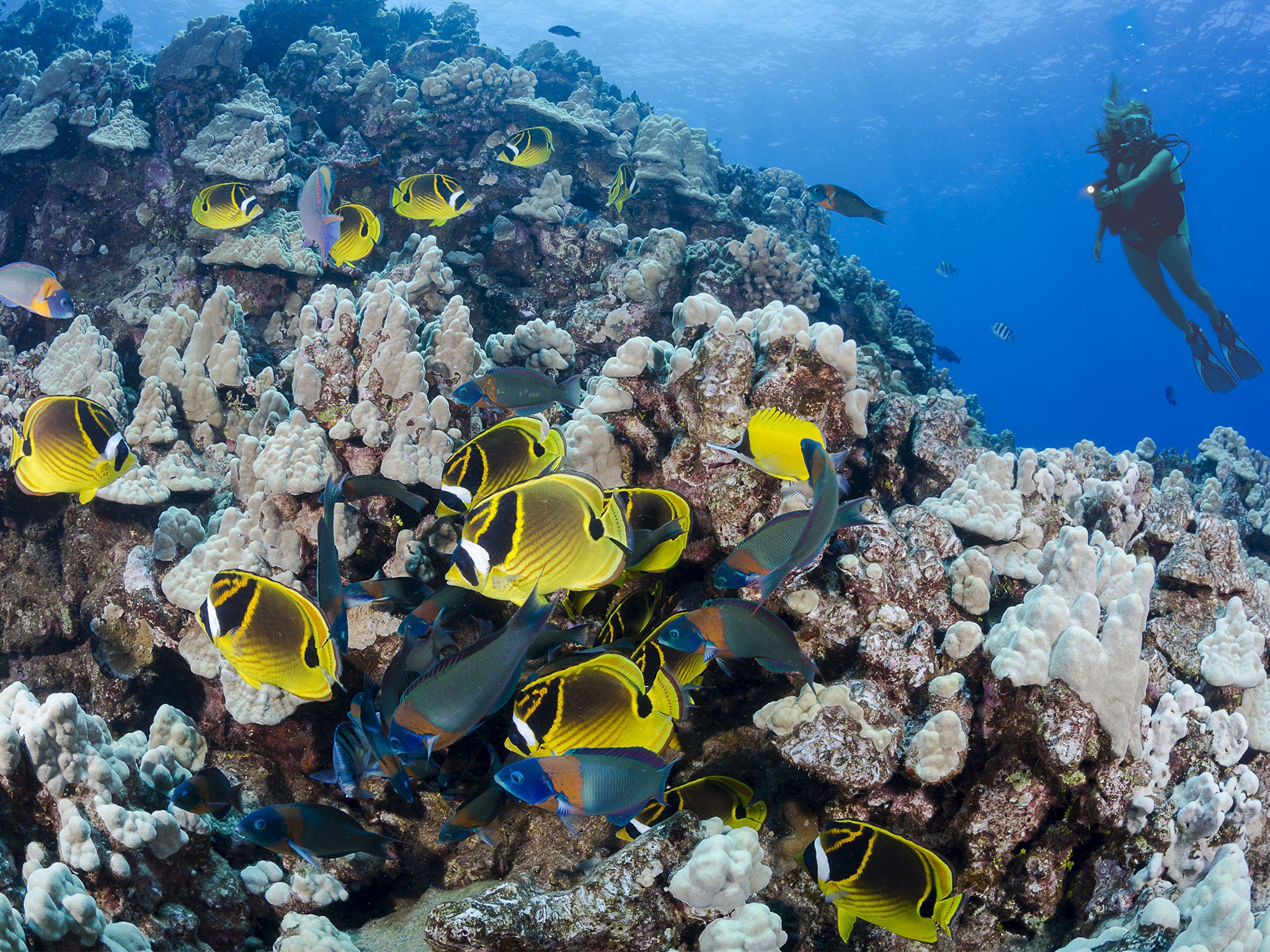Hawaii to ban sunscreen products linked to coral reef damage
State will outlaw sale of more than 3,500 products thought to harm sea life

Your support helps us to tell the story
From reproductive rights to climate change to Big Tech, The Independent is on the ground when the story is developing. Whether it's investigating the financials of Elon Musk's pro-Trump PAC or producing our latest documentary, 'The A Word', which shines a light on the American women fighting for reproductive rights, we know how important it is to parse out the facts from the messaging.
At such a critical moment in US history, we need reporters on the ground. Your donation allows us to keep sending journalists to speak to both sides of the story.
The Independent is trusted by Americans across the entire political spectrum. And unlike many other quality news outlets, we choose not to lock Americans out of our reporting and analysis with paywalls. We believe quality journalism should be available to everyone, paid for by those who can afford it.
Your support makes all the difference.Lawmakers in Hawaii are set to ban the sale of sunscreens that contain chemicals linked to the destruction of coral reefs.
The state legislature has moved to pass laws prohibiting lotions containing oxybenzone and octinoxate, believed by some scientists to contribute to coral bleaching.
A ban could be brought into place by January 2021, if the bill is approved by the state’s Democratic governor David Ige.
Around 3,500 sun protection products containing oxybenzone are currently available to consumers worldwide.
“Oxybenzone and octinoxate cause mortality in developing coral; increase coral bleaching that indicates extreme stress and cause genetic damage to coral and other marine organisms,” the bill states.
“These chemicals have also been shown to degrade corals' resiliency and ability to adjust to climate change factors and inhibit recruitment of new corals”.
The legislation warns chemical pollution in Hawaii’s waters was being “constantly refreshed and renewed” by swimmers and beach goers wearing sunscreen.
State senator Mike Gabbard, who proposed the ban, said the move was a “first-in-the-world law”.
“Hawaii is definitely on the cutting edge by banning these dangerous chemicals in sunscreens,” he told the Honolulu Star Advertiser.
“When you think about it, our island paradise, surrounded by coral reefs, is the perfect place to set the gold standard for the world to follow.
“This will make a huge difference in protecting our coral reefs, marine life, and human health.”
But, the plans have received opposition from the Hawaii Medical Association, which has raised concerns over the public health impact of banning certain types of sun lotion on the islands.
“We’ve got several decades of public policy and public health concerns about skin cancer and sun exposures,” Dr Chris Flanders, the organisation’s executive director told Hawaii Public Radio.
“That’s our big concern, that we don’t want people to skip on sunscreen.”
In 2015, a study published by an group of international scientists concluded oxybenzone was “highly toxic” to juvenile corals and other marine life.
Researchers found the chemical not only increased the likelihood of bleaching, but also caused DNA damage, abnormal skeleton growth and deformities in baby coral.
Coral bleaches when water temperatures rise above a level it can tolerate, leading it to expel the algae that usually share a symbiotic relationship with its polyps and eventually causing starvation.
A heatwave on Australia’s Great Barrier Reef between March and November 2016 caused 30 per cent of its coral to die off.
Join our commenting forum
Join thought-provoking conversations, follow other Independent readers and see their replies
Comments